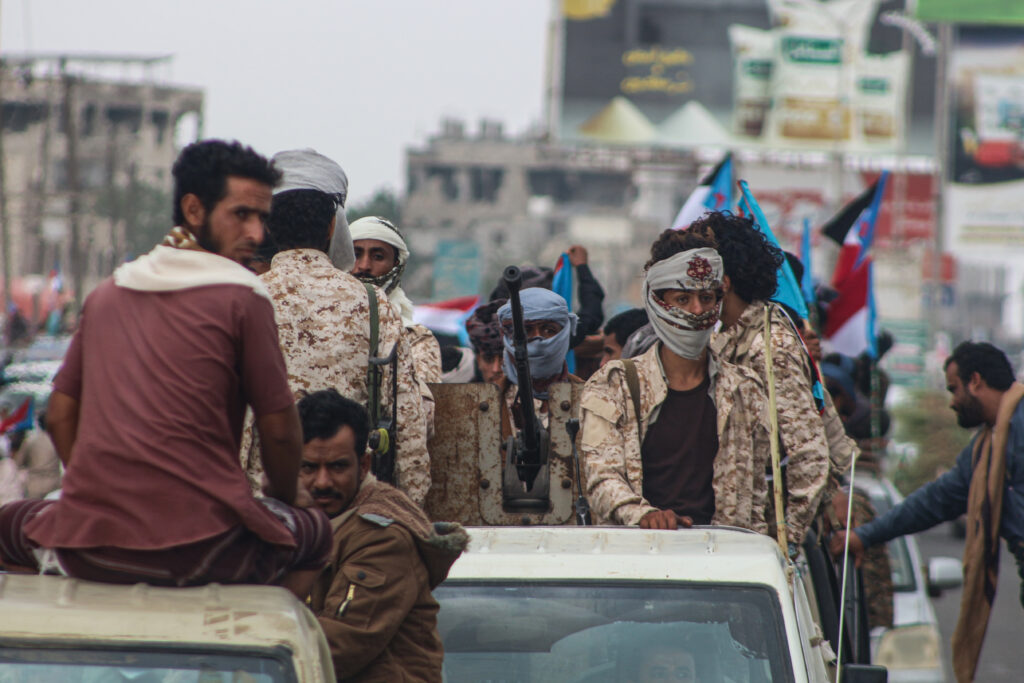Saudi says UAE-backed advance in Yemen threatens its security
Saudi Arabia declared a UAE-backed separatist advance in Yemen as a threat to Riyadh’s national security on Tuesday and called Abu Dhabi’s actions “highly dangerous”, as the conflict boiled over into an open dispute between the Gulf powers.The strongly worded foreign ministry statement came after the Saudi-led coalition fighting in Yemen said it had struck a United Arab Emirates weapons shipment destined for separatist forces.In recent weeks, separatists backed by Abu Dhabi and seeking to revive the formerly independent state of South Yemen have made sweeping territorial gains after launching a lightning offensive in recent weeks.Experts say their successes have embarrassed Saudi Arabia, a regional heavyweight and the main backer of the internationally recognised Yemeni government.The leader of Yemen’s presidential council, which sits atop that government, declared a state of emergency and cancelled a security pact with Abu Dhabi after the forces of the UAE-backed Southern Transitional Council (STC) seized swathes of territory.The STC is also part of the government, a fractious patchwork of groups held together by its opposition to the Iran-backed Houthi rebels who control swathes of northern and western Yemen including the capital Sanaa.Saudi Arabia and the UAE, traditionally close allies who joined forces in Yemen against the Houthis, have increasingly been at odds over the conflict on their doorstep, as well as the war in Sudan.”The Kingdom (Saudi Arabia) expresses its disappointment by the actions taken by the brotherly United Arab Emirates, pressuring the Southern Transitional Council’s forces to conduct military operations on the southern border of the Kingdom,” the Saudi statement said.It called them “a threat to the Kingdom’s national security, as well as to security and stability in the Republic of Yemen and the region,” it said.”The steps taken by the UAE are considered highly dangerous,” it said, adding “the Kingdom stresses that any threat to its national security is a red line, and the Kingdom will not hesitate to take all necessary steps and measures to confront and neutralise any such threat”.- ‘Fire is still burning’ -Riyadh also backed a demand from Yemen’s presidential council for Emirati forces to withdraw from the country within 24 hours, and urged Abu Dhabi to cut off military and financial support for Yemeni groups.Rashad al-Alimi, head of the Presidential Leadership Council, issued decrees on Tuesday announcing a 90-day state of emergency and annulling a security pact with the UAE over the separatists’ advance.Earlier, the Saudi-led coalition said it targeted a large quantity of weapons and combat vehicles sent by the UAE for the secessionist forces.The coalition struck two ships carrying “a large quantity of weapons and combat vehicles to support the Southern Transitional Council forces”, the Saudi state news agency SPA reported.”Given the danger and escalation posed by these weapons… the Coalition air forces carried out a limited military operation this morning targeting weapons and combat vehicles that had been unloaded from the two ships at the port of al-Mukalla,” it said.The ships had arrived from the UAE port of Fujairah, SPA said, adding that the operation was conducted in accordance with international humanitarian law and without collateral damage.An official at the port said a warning to evacuate was received at 4:00 am (0100 GMT) local time.”The evacuation completed, and the strike occurred a quarter of an hour later in a dirt area within the port. The fire is still burning,” the official said on condition of anonymity, as he was not authorised to speak to media.- ‘Unacceptable to God’ -Abdullah Bazuhair, whose home overlooks the port, showed AFP the damage to his property, with windows blasted clear out of the walls and glass strewn across the floor. The strikes were “unacceptable to God” he said, adding “the children were terrified and the women frightened”.AFP footage of the port showed dozens of parked military vehicles and pick-ups, several of which were burnt out and smouldering as workers hosed them down.The Saudi-led coalition had warned that it would back Yemen’s government in any military confrontation with separatist forces and urged them to withdraw “peacefully” from recently seized territories in Hadramawt and Mahra governorates.Tuesday’s strike came days after reported Saudi air raids on separatist positions in resource-rich Hadramawt — and after Washington called for restraint in the conflict.In recent days, hundreds of Yemeni tribesmen have gathered in Aden to ask the STC’s leaders to announce the independence of South Yemen, according to the separatist-affiliated Aden Independent Channel.A Yemeni military official said on Friday that around 15,000 Saudi-backed fighters were massed near the Saudi border but had not been given orders to advance on separatist-held territory.burs/th/dcp

